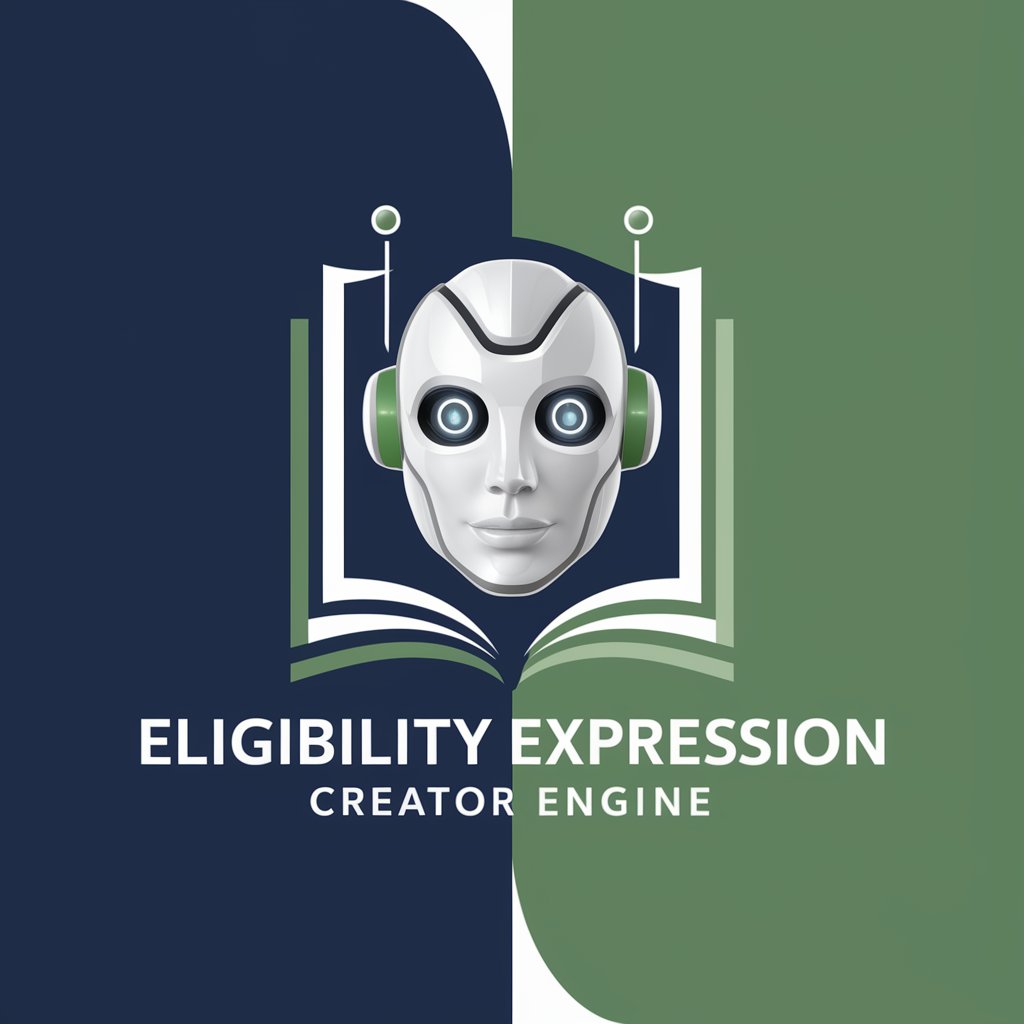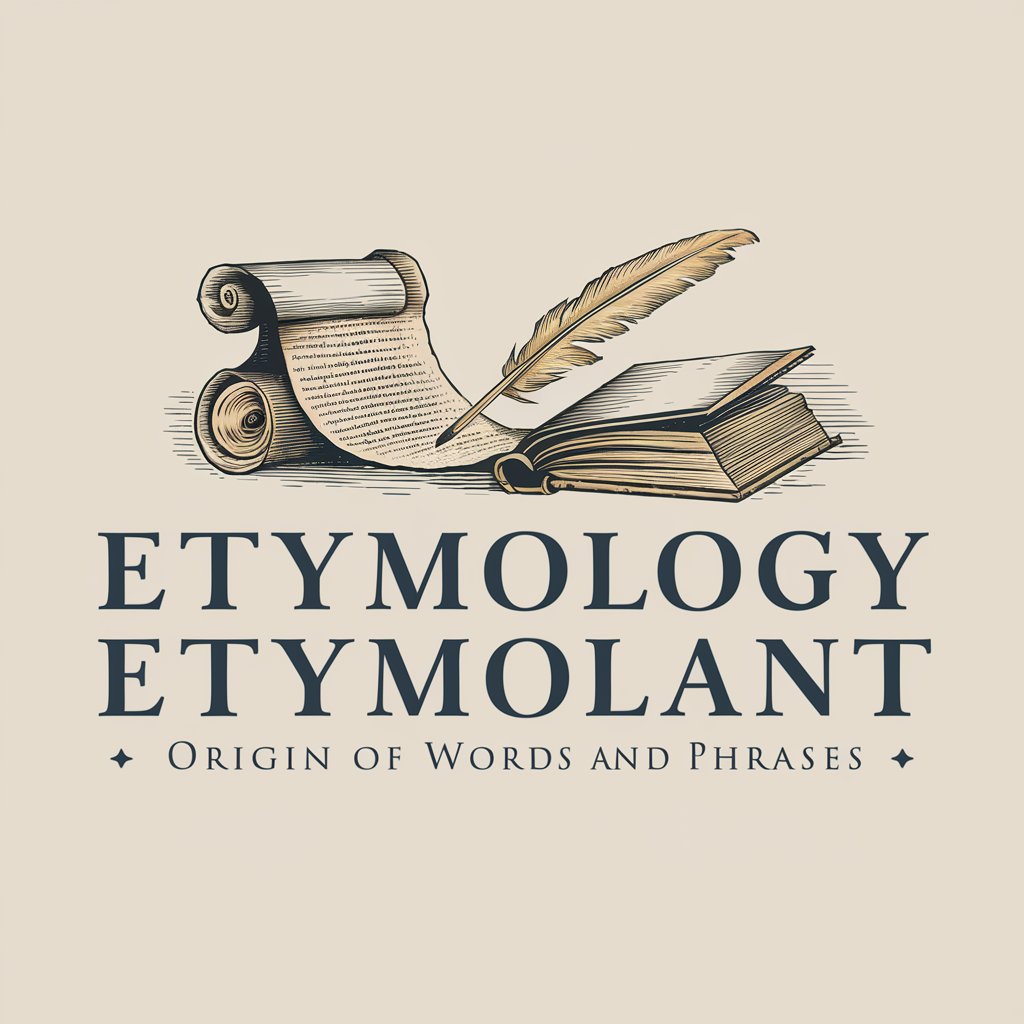
Origine d'une Expression - expression origin tool AI

Bienvenue à la découverte des origines des expressions françaises !
Discover the roots of language with AI
Expliquez l'origine de l'expression :
Quelle est l'histoire derrière l'expression :
D'où vient l'expression :
Pouvez-vous raconter l'origine de l'expression :
Get Embed Code
Overview of Origine d'une Expression
Origine d'une Expression is designed to explore the origins of expressions, particularly focusing on their historical context and evolution. This specialized tool aims to deepen users' understanding of commonly used phrases by elucidating their backgrounds and how they have been integrated into everyday language. For example, when someone queries the origin of the French expression 'Mettre la main à la pâte,' Origine d'une Expression not only explains that this phrase originated in the context of involving oneself directly in work (literally putting one's hand in the dough), but also provides insights into its first recorded uses and how it reflects cultural attitudes towards participation and effort. Powered by ChatGPT-4o。

Key Functions of Origine d'une Expression
Historical Contextualization
Example
L'appel du vide
Scenario
When a user inquires about the phrase 'L'appel du vide,' Origine d'une Expression provides a detailed explanation of the psychological phenomenon associated with the urge to jump from high places, linking it to existential and philosophical discussions in French culture.
Comparative Analysis
Example
Coup de foudre
Scenario
A user interested in the romantic expression 'Coup de foudre' receives not only the French origin relating to sudden and intense romantic attraction (literally 'strike of lightning') but also a comparison to the English equivalent 'love at first sight,' highlighting similarities and differences in expression use across languages.
Familiarity Evaluation
Example
Tenir la chandelle
Scenario
Origine d'une Expression evaluates the familiarity of 'Tenir la chandelle,' explaining its usage as being the third wheel in a social situation, providing context about its frequency of use in modern French, and whether it is known or outdated in contemporary settings.
Target User Groups for Origine d'une Expression
Language Learners
Students and enthusiasts learning French as a second language who seek to understand not just vocabulary but also the cultural nuances embedded within the language would find Origine d'une Expression incredibly beneficial for enhancing their linguistic skills and cultural comprehension.
Cultural Historians
Scholars and researchers focused on the evolution of language and cultural expressions would utilize Origine d'une Expression to access detailed historical and cultural contexts of phrases, aiding in academic studies or curatorial projects related to language history.
General Curiosity Seekers
Individuals with a general interest in language and culture, or those who encounter expressions in literature, films, or conversations and wish to delve deeper into their meanings and origins, would find this tool enriching and informative.

How to Use Origine d'une Expression
1
Visit yeschat.ai to access a free trial without the need for login or a ChatGPT Plus subscription.
2
Select the 'Origine d'une Expression' tool from the available options to start exploring various expressions.
3
Type your query into the input box to ask about the origin of any specific expression or phrase.
4
Review the detailed history, context, and usage of the expression presented by the tool.
5
Use the additional features such as equivalent expressions in other languages to enhance your understanding and application.
Try other advanced and practical GPTs
Border Buddy
Empowering expertise with AI precision

Border Collie Pro
Empowering Border Collie owners with AI.

Number of Days Cross Border Advisor
Smart, AI-Powered Stay Management

Border Sentinel - Brazil
Navigate immigration with AI precision

Border Collie Guru
Smart Training for Smart Dogs

InfoSec Pro - Cybersecurity Redefined
Empowering Cybersecurity with AI

Frog Expression Pack
Animate Your Frogs with AI!

Micro-expression Insight
Unlock emotions, power understanding.

Eligibility Expression Creator Engine
AI-driven Eligibility Interpretation

Expression Explorer
Decipher Emotions with AI

Expression Tuner
Refine Your English with AI

Mind Set
Empower Your Growth with AI

Frequently Asked Questions About Origine d'une Expression
What is the purpose of Origine d'une Expression?
Origine d'une Expression is designed to provide the historical context, origin, and evolution of phrases and expressions, enriching users' understanding of language.
Can Origine d'une Expression provide equivalents in other languages?
Yes, it offers equivalents and similar expressions in different languages, notably in French and English, to broaden linguistic knowledge and cross-cultural understanding.
Is Origine d'une Expression suitable for academic use?
Absolutely, it's an invaluable resource for students, researchers, and writers who require detailed backgrounds and usage examples of expressions for their academic projects.
How does Origine d'une Expression handle obscure or rare expressions?
The tool has a comprehensive database and uses advanced algorithms to retrieve even the most obscure expressions, providing rich historical and usage context.
Are there any tips for getting the most out of Origine d'une Expression?
For optimal results, be specific with your queries, use the additional features like language equivalents, and explore the detailed examples and contexts provided.





